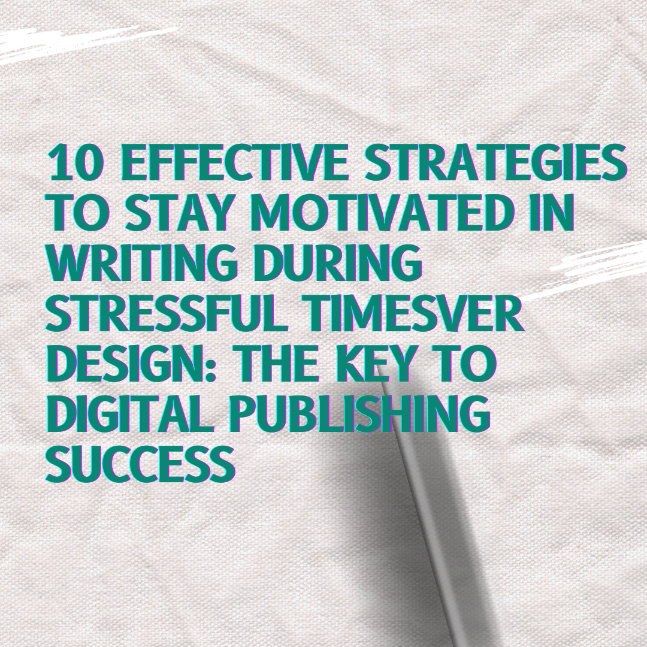Ways to Find Motivation to Keep Writing When Feeling Stressed or Overwhelmed

Writing, while a fulfilling creative pursuit, can often become challenging, especially when stress or overwhelm set in. Whether you're a novelist, a blogger, or a student working on an assignment, finding the motivation to keep writing under these circumstances is crucial. Here are several strategies to help you maintain your writing momentum even when the going gets tough.
1. Set Realistic Goals
- Break Down Tasks: Large writing projects can seem daunting. Break them into smaller, manageable tasks. This makes the process less overwhelming and provides a clear roadmap.
- Set Achievable Targets: Aim for realistic word counts or time limits. It's more motivating to hit a modest target than to fall short of an ambitious one.
2. Create a Comfortable Writing Environment
- Choose a Quiet Space: Find a place where distractions are minimal. A calm environment can significantly reduce stress levels.
- Personalize Your Space: Make your writing area inviting. A comfortable chair, a favorite mug, or a plant can make a big difference in your comfort and motivation.
3. Establish a Routine
- Fixed Writing Times: Set aside specific times for writing. Consistency can breed habit, making it easier to start each day.
- Warm-Up Rituals: Begin with a ritual, like a cup of tea or reading a favorite poem. This can signal to your brain that it's time to write.
4. Take Regular Breaks
- The Pomodoro Technique: Work for 25 minutes, then take a 5-minute break. This can boost focus and prevent burnout.
- Physical Activity: Short walks or stretches can rejuvenate your mind and body.
5. Practice Mindfulness and Stress-Relief Techniques
- Meditation and Breathing Exercises: These can help in managing stress and clearing your mind, providing a fresh perspective on your writing.
- Journaling: Writing about your feelings can be a cathartic experience and reduce the emotional burden.
6. Connect with Others
- Writing Groups: Joining a writing group or community can provide support, motivation, and accountability.
- Feedback Sessions: Sharing your work with trusted peers can offer new insights and boost your morale.
7. Remember Your ‘Why’
- Revisit Your Goals: Remind yourself why you started writing in the first place. This can reignite your passion.
- Visualize Success: Imagine the satisfaction of completing your project. This visual can be a powerful motivator.
8. Limit Perfectionism
- Accept Imperfection: Understand that first drafts are rarely perfect. Allow yourself to write badly at first, knowing you can edit later.
- Set Time Limits: Limit the time spent on each section to prevent overthinking.
9. Use Positive Reinforcement
- Reward Yourself: Set up a reward system for meeting small goals. It could be as simple as a snack or a break to watch a favorite show.
- Positive Affirmations: Use positive self-talk to boost confidence and reduce self-criticism.
10. Stay Inspired
- Read Regularly: Reading can provide inspiration and new ideas.
- Explore Different Genres: Sometimes, switching up what you're writing can rekindle your interest and creativity.
Finding motivation to write during stressful times is about understanding what works for you. It’s a personal journey of discovering how to balance discipline with self-care, and ambition with realistic expectations. Remember, every writer faces these challenges, and overcoming them is part of your growth and success story as a writer. Keep experimenting with these strategies until you find the mix that keeps the words flowing, even on the toughest days.
You may also like…



